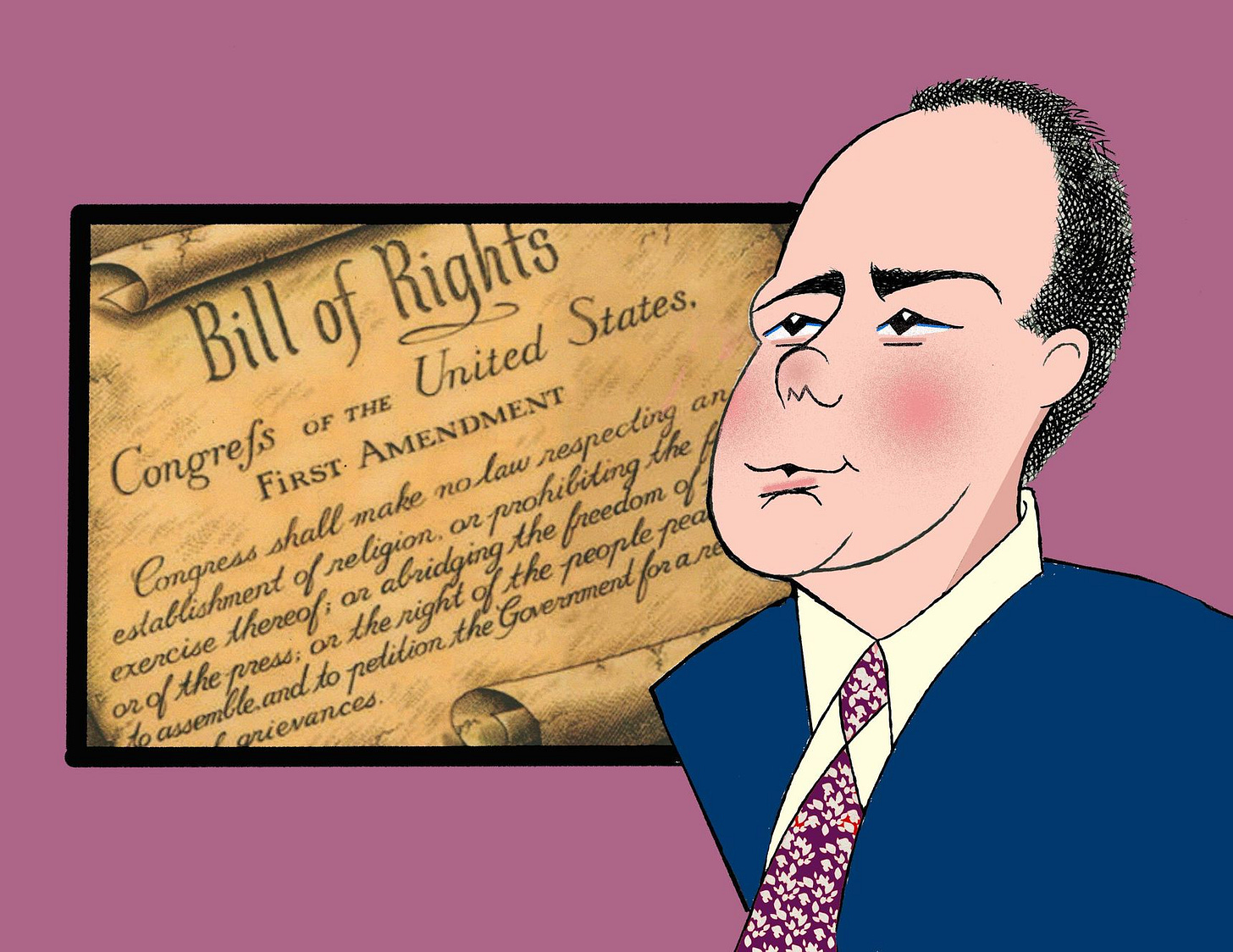The new black-Jewish civil rights alliance
For FAIR’s Substack, Henry Kopel writes about a landmark alliance that was shaped by parallel experiences of oppression and exclusion in the black and Jewish communities.
African Americans and Jews also share a common theological identity as “Exodus peoples.” While the Jewish escape from slavery is ancient history, it remains central to Jewish prayer and ethics: among the Torah’s most frequently stated commands is to be kind to the stranger, for you were strangers in Egypt. For African Americans, the Old Testament framing of both slavery and the long march to freedom is exemplified by the iconic spiritual “Go down Moses,” a refrain frequently heard during the pitched battles of the civil rights movement.
Hence it was no coincidence that black and Jewish leaders joined together in 1909 to found the NAACP, and again in 1950 to found the Leadership Conference on Civil Rights, which was responsible for drafting the original text of the 1964 Civil Rights Act.
Half of the volunteers for the 1964 “Freedom Summer” in Mississippi, who helped black citizens register to vote, were Jewish.
To be clear: the principal leaders and foot soldiers of the Civil Rights movement were courageous black Americans. But the record shows clearly that their most consistent allies in the fight for equal rights were Jewish Americans.
I Did Not Feel the Need to See People ‘Like Me’ on TV or In Books
For the New York Times, FAIR Advisor John McWhorter writes about why he believes relating to characters on TV or in books doesn’t necessitate having the same skin color as the characters depicted.
This idea that one, if brown, is to seek one’s “self” in what one reads and watches gets around quite a bit. I remember an African-American studies major, a Black guy, telling me in 1994 that if he couldn’t study things having to do with himself, he wouldn’t want to go to college at all. Now, he didn’t mean solely his very self — his main interest at the time was the Négritude school of thought pioneered by Francophone intellectuals in the 1930s such as Aimé Césaire.
But still, the idea that a Black person is deprived in not exploring that which they already “relate to” is not as natural as it sounds. This position is rooted, one suspects, as a defense against racism, in a sense that learning most meaningfully takes place within a warm comfort zone of cultural membership. But it’s a wide, wide world out there, and this position ultimately limits the mind and the soul. I question its necessity in 2023. The etymology of the word “education” is related to the Latin “educere,” meaning to lead outward, not inward.
The Narcissism Of Woke Totalitarianism
For his Substack, Public, FAIR Advisor Michael Shellenberger writes about how the publisher of the late British children’s author, Roald Dahl, has changed hundreds of words and passages in his books to make them politically correct.
The Dahl censorship is occurring against the backdrop of an increasingly censorious Wokeism. Over the last few weeks, we have seen a witch hunt against psychologist Jordan Peterson, an open letter from 1,000 writers, authors, and journalists demanding that The New York Times not report on problems with prescribing gender dysphoric children puberty blockers, and a State Department-funded “Disinformation Index,” which slandered The New York Post, Reason, and other reputable publications as fonts of disinformation, and urged corporations to redirect their advertising spending to publications including Huffington Post.
Two years ago, when activists were tearing down statutes of historical figures, people quoted from Orwell, above (“every statue and street and building has been renamed”). Since then, Woke activists have, with Dahl, started down the road of realizing another clause in that sentence: “every book has been rewritten.” Warns O’Neill, “Anyone who thinks the terrifying trend of posthumous censure will end with Dahl is dreaming.”
DEI at Law Schools Could Bring Down America
For the Wall Street Journal, Tunku Varadarajan writes about Ilya Shapiro, Stanford, and why the threat to ‘dismantle existing structures’ is an idle one in English class, but poses a serious problem in legal education as it targets individual rights and equal treatment under the Constitution.
“Professors are shying away from entire topics, not just a given perspective on a topic,” Mr. Shapiro says. They’re “just skipping over anything to do with rape or hate crimes, because they’re too sensitive. You try to write an exam question and there are too many red flags, too many tripwires.” These professors do “their students a disservice by not training them in how to advocate in the real world of courts. There, it’s not a conversation between the left and the far left.”
Mr. Shapiro says “nonprogressive” law professors were rare even 20 years ago, when he studied law at the University of Chicago. Critical legal studies, fashionable in the late 1980s and early ’90s, was “passé, a very small niche thing.” Since then, “what’s really changed is the bureaucratic explosion. And most of that bureaucracy is in this DEI space, which actively subverts the traditional educational mission of truth-seeking” with its “ideas of power dynamics and intersectionality, dividing people into oppressive and oppressed classes, and things like that.”
The Trouble With Race and Its Many Shades of Deceit
For New Lines Magazine, Subrena and David Smith write about how education programs intended to foster diversity, equality and inclusion do harm, and why they believe it’s time for a radical shift.
We want to make it clear that we fully endorse the aims of DEI programs. But we object to how they are carried out, for, as noble as these aims are, there is a fatal contradiction at the heart of much of what goes on in them, a contradiction that threatens to undermine the entire enterprise. Although the purpose of anti-racist training is to vanquish racism, most of these initiatives are simultaneously committed to upholding and celebrating race. One can see this quite clearly in the work of Ibram X. Kendi and Robin DiAngelo, well-known voices in the anti-racist movement. Both of them presume that we can oppose racism while leaving the concept of race intact.
But in the real world, can we have race without racism coming along for the ride? Trying to extinguish racism while shoring up race is like trying to put out a fire by pouring gasoline on it. It can only make matters worse. To get rid of racism we have to get rid of race.
Stop trying to make ‘digital blackface’ happen
For UnHerd, Kat Rosenfield writes about the media’s vested interest in keeping Americans divided.
The popularity of these GIFs stems from the fact that they represent events, emotions, and cultural touch points that millions of people recognise and relate to; in many cases, they speak to something not just specifically American but deeply human. That something like the Crying Jordan meme has become a global visual shorthand for conveying our feelings — the fact that people of every age, shape, colour and creed feel represented by the raw emotion captured there — should be seen as a triumph of common humanity over identity category. It is, at the population level, exactly what an inclusive society should strive for.
FAIR News Podcast
For audio versions of our FAIR News and FAIR Weekly Roundup newsletters, subscribe and listen to FAIR News Weekly on Apple Podcasts, Spotify, Google Podcasts, or via RSS feed.
Join the FAIR Community
Become a FAIR volunteer or to join a FAIR chapter.
Join a Welcome to FAIR Zoom information session to learn more about our mission, or watch a previously recorded session in the Members section of www.fairforall.org.
Take the Pro-Human Pledge and help promote a common culture based on fairness, understanding, and humanity.
Support FAIR and the pro-human movement with a tax-deductible donation.
Share your reviews and inform our legal team of incidents on our FAIR Transparency website.












Strange how these two groups are now seemingly pitted against each other, just like trans and gay people, trans women and biological women, etc.
Is identity politics working? I think the answer is obvious.
New post FAIR readers will appreciate: https://michaelmohr.substack.com/p/some-surprising-data-on-black-americans